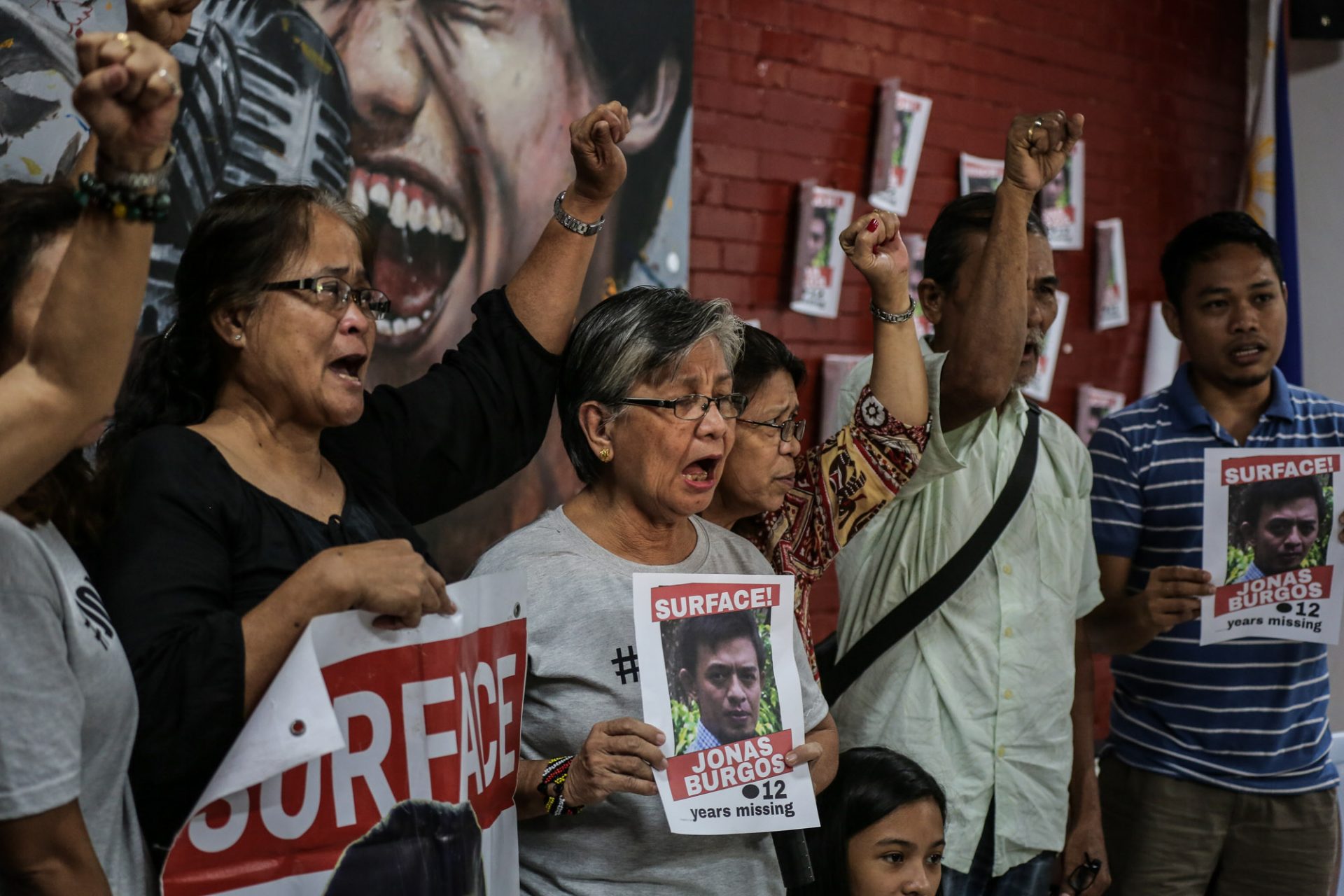“For 2020, my greatest hope is to get truth and justice for Sombath and for him to be returned to my family,” said Shui-Meng Ng, wife of missing Laos development worker Sombath Somphone.
One of the many family members of the disappeared, Shui-Meng Ng is one of the most indefatigable fighters for truth and justice.
The United Nations Working Group on Enforced or Involuntary Disappearances speaks of 45,811 outstanding cases from 108 states. Since its inception in 1980, even with many unreported instances, it has recorded 57,891 cases.
In varying contexts, such as poverty and social injustice, authoritarian rule, and state struggle for independence, enforced disappearances continue to occur unabated, violating multiple rights of the disappeared and their loved ones.
2019 witnessed new contexts such as extradition of persons having risks of enforced disappearances, counter-terrorism targeting human rights defenders, and migration.
This year also confirmed Asia as the region with the highest number of cases of enforced disappearance submitted to the United Nations in the last decade.
Of the total number of 45,811 outstanding cases, 26,833 are from Asia.
In South Asia, against the backdrop of war on terrorism, cases of enforced disappearances in Pakistan continue. The group Defence for Human Rights recorded 80 new cases. Cases reported to the Commission of Inquiry on Enforced Disappearance swelled to 6,474.
In Bangladesh, enforced disappearances, among many human rights violations, are being committed by law enforcement agencies to stifle dissent. Human rights advocacy, especially in this country, will cost defenders their lives.
In Southeast Asia, the Philippines remains the country with the highest number of outstanding cases submitted to the United Nations.
This is not to mention the 76 cases documented by the group FIND under the administration of President Rodrigo Duterte, taking into consideration underreporting due to the atmosphere of fear created by the war on drugs.
The Philippine government are currently attempting to have 625 cases “delisted” from the U.N.
In Bangladesh, enforced disappearances were committed by law enforcement agencies with the direct consent of the government to silence dissenting voices.
Triumphs among despair
To keep the fire burning in the long and arduous road to justice, it is important to count triumphs in attaining the vision of a world without ‘desaparecidos’.
One key outcome at the end of this year is that a treaty against enforced disappearances has garnered 98 signatories and 62 ratifications since its entry into force in 2010.
The U.N. Committee on Enforced Disappearances aims to significantly increase the number of ratifications in the next few years.
Another key effort is the global initiative of the International Committee of the Red Cross (ICRC) to renew its project “The Missing.”
Gathering several experts on the theme of enforced disappearances the world over, the ICRC is continually discussing from the perspectives of victims and experts the importance of search efforts, including the value of investigation, DNA testing, exhumations, psychosocial accompaniment of victims, and advocacy vis-à-vis enforced disappearances.
These efforts help pave the way to much-needed breakthroughs.
A major success in 2019 was the adoption of the Guiding Principles for the Search for Disappeared Persons by the U.N. Committee on Enforced Disappearances.
Never giving up
Lest we forget, the reunifications of disappeared children with their families in Argentina, El Salvador, Guatemala, and Timor-Leste are the most gratifying of all outcomes. That there be more of these in 2020 is every family member’s dream.
Losing hope is a crime. For the incoming year 2020, what can victims’ families hope for?
Erlinda Malicdem, wife of Filipino desaparecido Jimmy Malicdem who disappeared during the 1980s, does not expect justice to come in 2020.
While she hopes that the international community can do something, she leaves everything to God. She remarked that many families of desaparecidos closed their eyes without ever seeing their loved ones again.
Exasperated by the dearth of results in the search for her son Darryl who disappeared in 2001, Fernando and Corazon Fortuna put their trust in God. They are hoping against hope that one day their beloved son will return.
The obscurity of the situation in her country does not deter Shui-Meng Ng from looking at 2020 with eyes of optimism. Instead, she vows to do her best to take part in the collective struggle towards the eradication of enforced disappearance from the face of the earth.
And they shall shed tears of joy when the long-awaited reunifications becomes a dream-come-true in 2020.
Mary Aileen D. Bacalso is former secretary general of the Asian Federation Against Involuntary Disappearances. She was awarded the 2019 Franco-German Ministerial Prize for Human Rights and the Rule of Law. In 2013, the Argentinian Government awarded her the Emilio F. Mignone International Human Rights Prize.
The views expressed in this article are the opinions of the author and do not necessarily reflect the editorial stance of UCA News.







